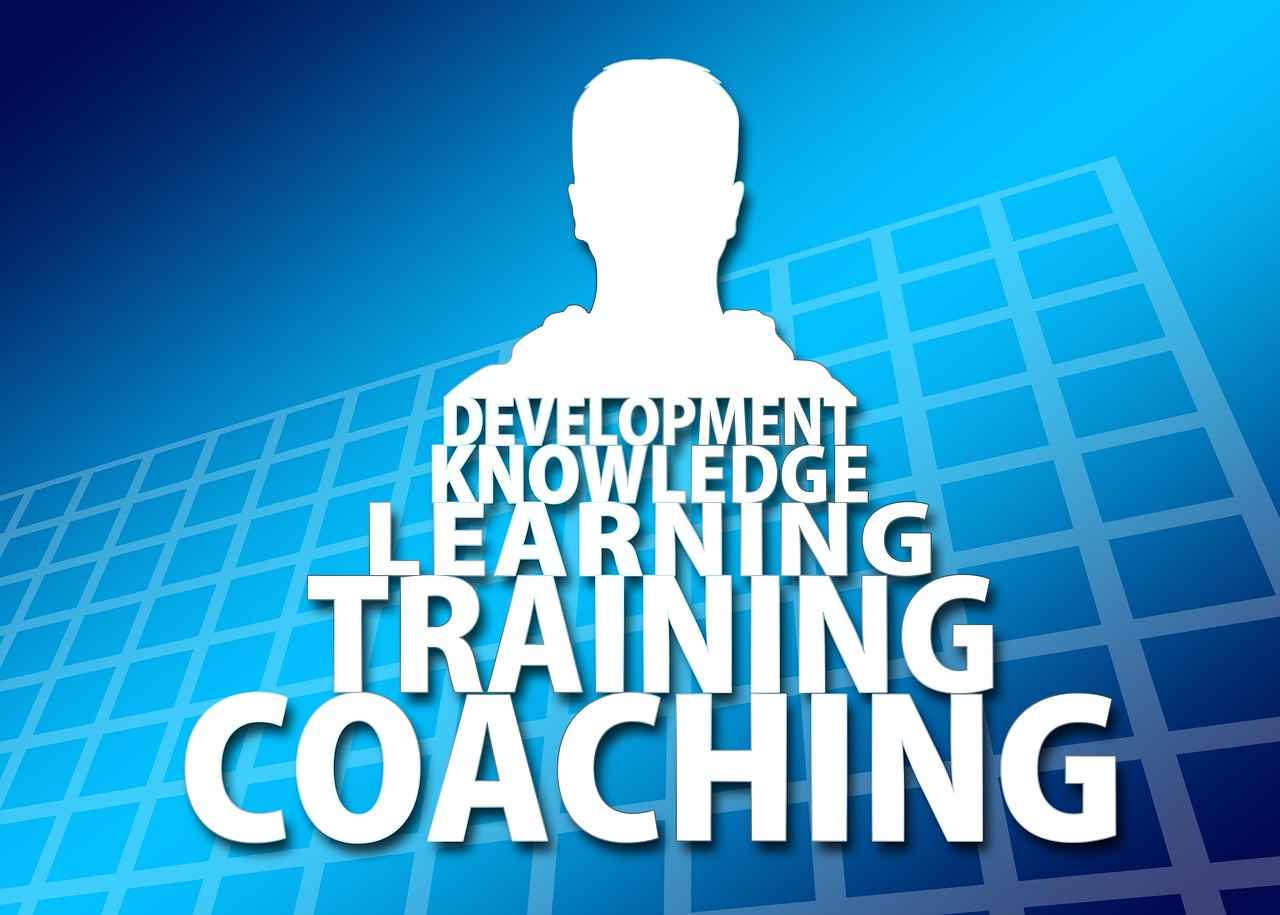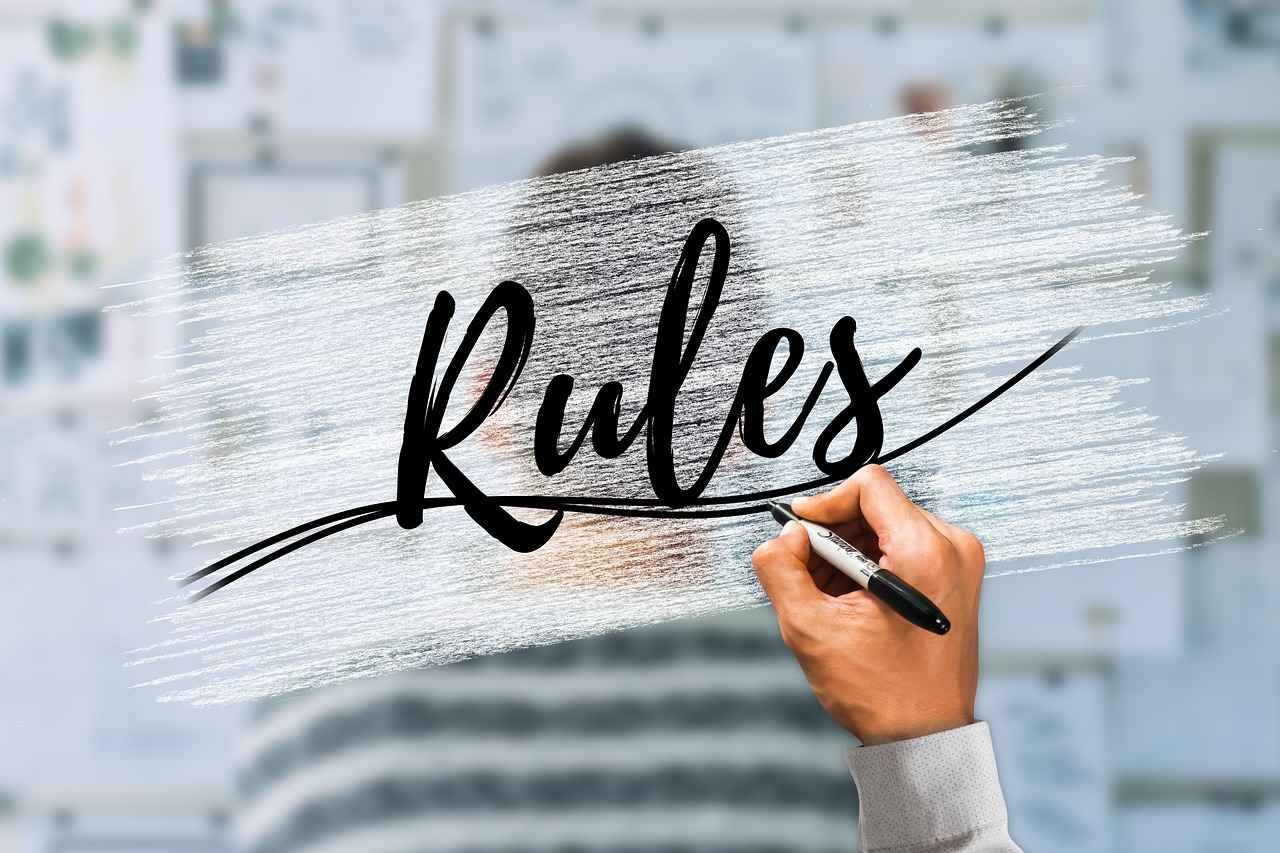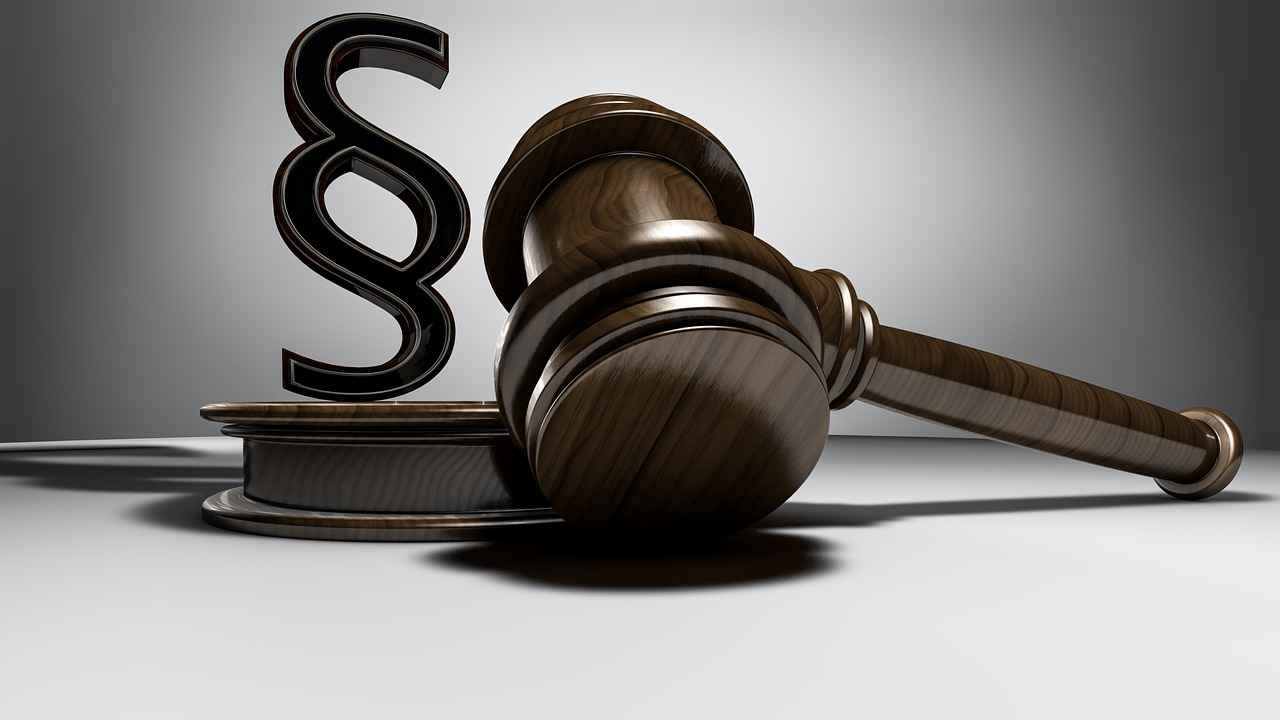This article guides you through the process of identifying qualified and trustworthy legal professionals in Orlando, Florida, focusing on various common legal cases and practical tips for hiring.
Understanding Personal Injury Cases
Personal injury cases are among the most common legal issues faced by individuals in Orlando. These cases often arise from accidents, negligence, and wrongful actions that result in physical or emotional harm. To find a skilled attorney, consider looking for those with a proven track record in personal injury law. Check their case results and client testimonials to gauge their effectiveness.
Medical Malpractice: Finding the Right Lawyer
Medical malpractice cases require specialized knowledge and experience. When searching for a lawyer in this field, look for attorneys who have handled similar cases successfully. Verify their credentials, such as board certifications and memberships in professional organizations. Additionally, consider their willingness to consult with medical experts, which can significantly impact your case’s outcome.
Breach of Contract: Legal Representation Essentials
Breach of contract cases can arise in various contexts, such as business agreements or personal contracts. To select the right attorney, ensure they have a solid understanding of contract law and a history of successful negotiations. Look for lawyers who are skilled in alternative dispute resolution methods, as these can often lead to quicker and less expensive outcomes.
Navigating Property Disputes
Property disputes can be contentious and complicated, often involving issues related to real estate transactions, zoning, or landlord-tenant relationships. To find an attorney who can effectively represent your interests, seek someone with extensive experience in property law. Consider their familiarity with local laws and regulations, which can be vital in resolving disputes efficiently.
Landlord-Tenant Disputes: Key Considerations
Landlord-tenant disputes are common, especially in urban areas like Orlando. Understanding your rights as a tenant or landlord is crucial. When hiring an attorney, look for someone who specializes in real estate law and has experience in landlord-tenant issues. They should be knowledgeable about local housing regulations and dispute resolution processes.
Defamation Cases: Legal Help You Can Trust
Defamation cases, whether involving libel or slander, can have serious consequences for your reputation. Finding a lawyer experienced in handling these sensitive cases is essential. Look for attorneys who have successfully litigated defamation cases and understand the nuances of free speech laws. Their experience can make a significant difference in your case.
Employment Disputes: Your Rights and Legal Support
Employment disputes cover a range of issues, including wrongful termination, discrimination, and wage disputes. When searching for an attorney, consider those who specialize in labor law and have a strong understanding of employee rights. It’s important to find a lawyer who is not only knowledgeable but also empathetic to your situation.
Product Liability: Choosing the Right Attorney
Product liability cases involve injuries caused by defective products. To find an attorney with the expertise to handle these complex claims, look for someone with experience in product liability law. Check their history of successful settlements and verdicts in similar cases. An attorney’s ability to navigate the intricacies of manufacturing and design defects can be crucial.
Wrongful Death Cases: Legal Guidance
Wrongful death cases require compassionate yet assertive legal representation. When seeking an attorney, prioritize those who have experience in handling sensitive cases involving loss of life. Look for lawyers who can provide not only legal expertise but also emotional support during this challenging time.
Class Action Lawsuits: Finding Specialized Legal Help
Class action lawsuits can be intricate and challenging. To identify attorneys who specialize in these large-scale legal battles, consider their experience with similar cases and their ability to manage complex litigation. Look for lawyers who have a strong track record of successfully representing groups of individuals against large corporations.
Criminal Defense: Assault, Battery, and Beyond
Criminal defense is a critical area of law. When facing charges related to assault, battery, or other criminal offenses, finding a skilled attorney is essential. Look for lawyers who specialize in criminal law and have a proven history of defending clients in similar situations. Their expertise can significantly impact the outcome of your case.
Family Law: Divorce and Child Custody Issues
Family law encompasses divorce, child custody, and support issues. To find an attorney who can advocate for your family’s best interests, seek those with a strong background in family law. Look for lawyers who emphasize mediation and negotiation, as these approaches can lead to more amicable resolutions.
Bankruptcy and Financial Legal Support
Bankruptcy cases require specialized legal knowledge. When searching for an attorney, consider those who have experience in bankruptcy law and can guide you through the complexities of financial legal matters. Look for lawyers who are well-versed in both Chapter 7 and Chapter 13 bankruptcy filings to ensure the best representation.

Understanding Personal Injury Cases
Personal injury cases are a significant aspect of the legal landscape in the United States, particularly in bustling cities like Orlando. These cases typically arise from accidents or instances of negligence, where individuals suffer harm due to another party’s failure to act responsibly. This can include a wide range of incidents, from car accidents to slip-and-fall cases, and even medical malpractice.
When faced with a personal injury case, the importance of finding a skilled attorney cannot be overstated. A proficient lawyer can effectively navigate the complexities of the legal system, ensuring that victims receive the compensation they deserve. Here are some essential tips for locating a qualified personal injury attorney in Orlando:
- Research and Referrals: Start by asking friends, family, or colleagues if they have any recommendations. Personal referrals can provide insights into an attorney’s character and effectiveness.
- Online Reviews: Utilize platforms like Avvo or Martindale-Hubbell to read reviews and ratings of local attorneys. These platforms often provide a comprehensive overview of an attorney’s experience and client satisfaction.
- Consultation: Most personal injury attorneys offer free initial consultations. Use this opportunity to discuss your case and gauge the attorney’s expertise and approach.
- Track Record: Inquire about the attorney’s success rate in handling personal injury cases. A proven track record can indicate their ability to secure favorable outcomes for clients.
- Specialization: Look for attorneys who specialize in personal injury law. Their focused expertise can significantly impact the handling of your case.
Additionally, be aware of red flags when selecting an attorney. Avoid those who make unrealistic promises or have a history of disciplinary actions. Trust your instincts; if something feels off, it’s essential to continue your search.
In conclusion, understanding the nuances of personal injury cases and knowing how to find a qualified attorney can greatly affect the outcome of your situation. With the right legal representation, victims can pursue justice and receive the compensation they rightfully deserve.

Medical Malpractice: Finding the Right Lawyer
Medical malpractice cases are among the most complex and emotionally charged areas of law. They arise when a healthcare professional fails to provide the standard of care expected, leading to injury or harm to a patient. Given the intricate nature of these cases, it is crucial to find a lawyer with specialized knowledge and experience in medical malpractice. Here are some essential steps to help you identify the right attorney for your needs.
- Research Their Background: Begin by looking for attorneys who specialize in medical malpractice. Check their educational background, years of experience, and any additional certifications in medical law. Websites like Avvo and Super Lawyers can provide valuable insights into an attorney’s qualifications and reputation.
- Look for Experience in Medical Cases: Not all personal injury lawyers have the expertise needed for medical malpractice cases. Ensure that the attorney has handled cases similar to yours and has a successful track record. Ask about their experience with specific medical procedures or conditions related to your case.
- Check for Professional Affiliations: Membership in professional organizations, such as the American Association for Justice or state-specific legal groups, can indicate a commitment to staying updated on the latest legal developments in medical malpractice.
- Read Client Reviews: Client testimonials can provide insight into an attorney’s communication style, responsiveness, and overall effectiveness. Look for reviews that specifically mention medical malpractice cases to gauge the lawyer’s performance in this niche.
- Assess Their Approach: During initial consultations, pay attention to how the attorney approaches your case. A good lawyer will listen carefully, ask pertinent questions, and explain the legal process clearly. They should also be able to outline a strategy tailored to your specific situation.
- Evaluate Their Resources: Medical malpractice cases often require substantial resources for expert witnesses and research. Ensure that the attorney you choose has access to the necessary resources to build a strong case.
- Understand Fee Structures: Medical malpractice cases can be costly, and many lawyers work on a contingency fee basis, meaning they only get paid if you win your case. Be sure to discuss fees upfront and understand any additional costs that may arise during the process.
- Trust Your Instincts: Finally, trust your gut feeling. You should feel comfortable and confident in your attorney’s abilities. If something feels off during your initial interactions, it may be worth exploring other options.
In summary, finding the right lawyer for your medical malpractice case involves thorough research, understanding their qualifications, and assessing their approach to your unique situation. By following these guidelines, you can enhance your chances of securing effective legal representation that will advocate for your rights and help you navigate this challenging area of law.

Breach of Contract: Legal Representation Essentials
Breach of contract cases can emerge in a multitude of contexts, from business agreements to personal arrangements. These disputes occur when one party fails to fulfill their obligations as stipulated in a contract, leading to potential financial losses and strained relationships. Selecting the right attorney to navigate these complexities is crucial for achieving a favorable outcome.
When searching for an attorney who specializes in breach of contract cases, consider the following essential factors:
- Experience in Contract Law: Look for attorneys with extensive experience specifically in contract law. They should possess a comprehensive understanding of both state and federal regulations that govern contracts.
- Track Record of Success: Research the attorney’s history of handling breach of contract cases. A proven track record of successful negotiations and favorable settlements indicates their ability to advocate effectively on your behalf.
- Client Testimonials and Reviews: Reading reviews and testimonials from previous clients can provide valuable insights into the attorney’s work ethic and success rate. Look for feedback that highlights their communication skills, responsiveness, and overall satisfaction with their services.
- Specialization: Some attorneys may focus on specific industries, such as real estate, construction, or corporate law. Ensure that the attorney you choose has relevant experience in the specific area related to your case.
- Initial Consultation: Many attorneys offer free consultations. Use this opportunity to discuss your case and gauge their understanding of your situation. Pay attention to how they assess your case and the strategies they propose.
In addition to these factors, it’s essential to be aware of red flags when selecting legal representation:
- Lack of Transparency: If an attorney is unwilling to discuss their fees or provide a clear outline of costs, it may indicate potential issues down the line.
- Poor Communication: An attorney’s inability to communicate effectively during initial consultations can be a warning sign. You want someone who is approachable and responsive to your queries.
- High Volume of Cases: If an attorney appears to be handling too many cases simultaneously, they may not be able to dedicate the necessary time and attention to your case.
Finding the right attorney for a breach of contract case involves thorough research and careful consideration. Utilize online legal directories, local bar association referrals, and personal recommendations to compile a list of potential candidates. After narrowing down your options, schedule consultations to determine which attorney is the best fit for your needs.
In metropolitan areas like New York City, Los Angeles, and Chicago, the abundance of legal professionals can be overwhelming. However, utilizing legal platforms such as Avvo, FindLaw, and Martindale-Hubbell can help streamline your search. These platforms provide ratings, reviews, and detailed profiles of attorneys, allowing you to make informed decisions.
Ultimately, a well-chosen attorney can guide you through the complexities of breach of contract disputes, ensuring that your rights are protected and that you have the best chance of achieving a successful resolution.

Navigating Property Disputes
Property disputes can be contentious and complicated, often arising from disagreements over ownership, boundaries, or lease terms. These conflicts can escalate quickly, making it essential to have a skilled attorney who understands the nuances of real estate law. Here’s how to find an attorney who can effectively represent your interests in these matters.
- Identify Your Needs: Before searching for an attorney, clearly define the nature of your property dispute. Are you dealing with a boundary issue, a landlord-tenant disagreement, or a title dispute? Understanding your specific needs will help you find an attorney with the right expertise.
- Research Local Attorneys: Start your search by looking for attorneys who specialize in real estate law in your area. Websites like Avvo and FindLaw can provide listings and reviews of attorneys based on their specialties and client feedback.
- Check Credentials: Look for attorneys who are members of reputable legal organizations, such as the American Bar Association or local bar associations. These memberships often indicate a commitment to staying updated on legal developments.
- Schedule Consultations: Once you have a shortlist of potential attorneys, schedule consultations to discuss your case. Many attorneys offer free initial consultations, allowing you to gauge their expertise and approach without financial commitment.
- Ask the Right Questions: During consultations, ask about their experience with similar cases, their success rates, and their fees. Inquire about their approach to resolving disputes and whether they prefer litigation or mediation.
- Evaluate Communication: Effective communication is crucial in legal representation. Choose an attorney who listens to your concerns, explains legal jargon in understandable terms, and keeps you updated throughout the process.
- Consider Costs: Legal fees can vary significantly. Understand the attorney’s billing structure—whether they charge hourly, have flat fees, or work on a contingency basis—and ensure it aligns with your budget.
In major metropolitan areas like New York City, Los Angeles, and Chicago, the competition among attorneys can be fierce. This makes it even more important to do your due diligence. Look for online reviews, ask for referrals from friends or family, and check for any disciplinary actions against the attorney.
Red Flags to Avoid: Be cautious of attorneys who make unrealistic promises or guarantee outcomes. Legal matters can be unpredictable, and a reputable attorney will provide a realistic assessment of your case. Additionally, avoid attorneys who do not communicate effectively or seem disinterested in your case. Trust your instincts—if something feels off, it’s best to continue your search.
By following these steps, you can find a qualified attorney who will advocate for your interests in property disputes, ensuring that your rights are protected and that you receive the representation you deserve.

Landlord-Tenant Disputes: Key Considerations
Landlord-tenant disputes are increasingly prevalent in urban areas, often arising from misunderstandings, unmet expectations, or legal ambiguities. These disputes can range from issues related to lease agreements, property maintenance, and security deposits to eviction notices and tenant rights. Understanding your rights as a tenant or landlord is crucial for resolving these conflicts effectively.
In many cases, tenants may feel overwhelmed by the complexities of rental agreements and the legal system. It is essential to know that both landlords and tenants have specific rights under state and local laws. For instance, tenants typically have the right to a safe and habitable living environment, while landlords have the right to receive timely rent payments and maintain their property. Familiarizing yourself with these rights can help you navigate disputes more confidently.
When facing a landlord-tenant dispute, the first step is to attempt to resolve the issue amicably. Open communication can often clear up misunderstandings and lead to a mutually beneficial solution. If discussions do not yield results, it may be necessary to consult a knowledgeable attorney who specializes in landlord-tenant law. Here are some tips for finding the right legal representation:
- Research Local Attorneys: Start by looking for attorneys in your area who have experience with landlord-tenant disputes. Websites like Avvo or FindLaw can provide listings and reviews.
- Check Credentials: Look for attorneys who are members of relevant legal associations, such as the American Bar Association or local bar associations. This can indicate a commitment to their field.
- Read Reviews: Client testimonials and reviews can provide insight into an attorney’s effectiveness and communication style.
- Schedule Consultations: Many attorneys offer free initial consultations. Use this opportunity to discuss your case and gauge their expertise and approach.
- Discuss Fees: Ensure you understand the attorney’s fee structure upfront. Some may offer flat rates, while others charge hourly fees.
In addition to finding a qualified attorney, it is essential to gather all relevant documentation related to your dispute. This may include:
- Lease agreements
- Correspondence with your landlord or tenant
- Photos of the property (if applicable)
- Receipts for repairs or payments made
Having this information readily available can significantly strengthen your case and assist your attorney in providing the best possible representation.
It is also important to be aware of common red flags when hiring an attorney. These can include:
- Promises of guaranteed outcomes
- Lack of experience in landlord-tenant law
- Unclear fee structures or hidden costs
- Poor communication or unresponsiveness
By being diligent in your search and informed about your rights, you can navigate landlord-tenant disputes with greater confidence. Whether you are a tenant seeking to assert your rights or a landlord aiming to enforce your lease agreements, the right legal support can make all the difference in achieving a favorable resolution.

Defamation Cases: Legal Help You Can Trust
Defamation cases, which encompass both libel (written defamation) and slander (spoken defamation), can have profound implications on an individual’s reputation and livelihood. The legal landscape surrounding defamation is complex, and navigating it requires the expertise of a knowledgeable attorney. If you find yourself in a situation where your reputation is at stake due to false statements made by others, understanding how to find the right legal representation is crucial.
When searching for a lawyer experienced in defamation cases, consider the following steps:
- Research Specialization: Look for attorneys who specialize in defamation law. This area of law is nuanced, and having a lawyer with specific experience can significantly impact the outcome of your case.
- Check Credentials: Verify the attorney’s educational background, bar association membership, and any additional certifications related to media law or defamation. This information can often be found on their firm’s website.
- Review Case History: Inquire about the attorney’s past cases involving defamation. A successful track record in similar cases can provide confidence in their ability to handle your situation effectively.
- Seek Referrals: Recommendations from trusted sources such as friends, family, or other legal professionals can lead you to reputable attorneys. Personal referrals often provide insights that online reviews may not capture.
- Utilize Legal Platforms: Websites like Avvo or FindLaw can help you find lawyers with expertise in defamation cases. These platforms often include client reviews and ratings, which can aid in your decision-making process.
- Assess Communication Skills: During initial consultations, pay attention to how the attorney communicates. A good lawyer should be able to explain complex legal concepts in a way that is easy to understand and should actively listen to your concerns.
- Evaluate Fees: Understand the attorney’s fee structure upfront. Some lawyers may work on a contingency basis, meaning they only get paid if you win your case, while others may charge hourly rates or fixed fees. Ensure that you are comfortable with the financial arrangement before proceeding.
In addition to these steps, it is essential to be aware of red flags that may indicate an attorney is not the right fit for your case:
- Poor Communication: If an attorney is unresponsive or fails to communicate clearly during initial consultations, this may be a sign of future difficulties in your case.
- Pressure Tactics: Be cautious of lawyers who pressure you into making quick decisions. A reputable attorney will provide you with the information you need to make informed choices without coercion.
- Lack of Transparency: An attorney who is not forthcoming about their experience, fees, or case strategies should raise concerns. Transparency is critical in establishing trust between you and your legal representative.
Defamation cases can be particularly challenging due to the burden of proof required to establish that a false statement was made and that it caused harm. Therefore, having an attorney who understands the intricacies of these cases can make a significant difference. They will help you gather evidence, navigate legal procedures, and advocate on your behalf.
In major metropolitan areas like New York City, Los Angeles, and Chicago, the legal market is saturated with options. However, the principles of finding a qualified attorney remain the same. Conduct thorough research, trust your instincts, and ensure that the lawyer you choose has a solid understanding of defamation law.
Ultimately, the right attorney can provide not only legal support but also peace of mind during a challenging time. By taking the time to find a trustworthy legal professional, you can better protect your reputation and seek justice for any harm caused by defamatory statements.

Employment Disputes: Your Rights and Legal Support
Employment disputes can arise from a variety of issues, including wrongful termination, discrimination, harassment, wage disputes, and more. As an employee, it is crucial to understand your rights and the legal protections available to you. Finding an attorney who specializes in labor law is an essential step in ensuring that your rights are upheld and that you receive the support you need during these challenging times.
Understanding Employment Law
Employment law encompasses a wide range of legal issues that affect employees and employers. These laws are designed to protect the rights of workers and ensure fair treatment in the workplace. Key areas of employment law include:
- Discrimination: Protection against unfair treatment based on race, gender, age, disability, or other protected characteristics.
- Harassment: Legal recourse for employees who experience unwanted and inappropriate behavior in the workplace.
- Wage and Hour Issues: Ensuring employees are paid fairly for their work, including overtime and minimum wage laws.
- Wrongful Termination: Legal action for employees who have been fired in violation of employment contracts or laws.
How to Find a Qualified Employment Attorney
When searching for an attorney who specializes in employment disputes, consider the following steps:
- Research and Referrals: Start by seeking recommendations from friends, family, or colleagues who have had positive experiences with employment lawyers. Additionally, online platforms like Avvo, Martindale-Hubbell, and the American Bar Association can provide valuable insights and ratings.
- Check Credentials: Look for attorneys who have specific experience in employment law. Verify their education, years of practice, and any relevant certifications. Membership in professional organizations, such as the National Employment Lawyers Association, can also indicate a commitment to this area of law.
- Schedule Consultations: Many attorneys offer free initial consultations. Use this opportunity to discuss your case and gauge the attorney’s expertise and communication style. Ask about their experience with cases similar to yours and their approach to handling disputes.
- Assess Compatibility: It’s essential to feel comfortable with your attorney, as you will be sharing sensitive information. Ensure that they listen to your concerns and provide clear answers to your questions.
- Understand Fees: Discuss the attorney’s fee structure upfront. Some may work on a contingency basis, meaning they only get paid if you win your case, while others may charge hourly rates or flat fees. Make sure you understand all potential costs involved.
Red Flags to Avoid
While searching for an attorney, be aware of potential red flags that may indicate an untrustworthy or inexperienced lawyer:
- Lack of Specialization: Avoid attorneys who do not specialize in employment law or who seem unfamiliar with current labor laws and regulations.
- Poor Communication: If an attorney is unresponsive or fails to communicate clearly during initial consultations, this may indicate future difficulties in your working relationship.
- Negative Reviews: Research online reviews and testimonials. Consistent negative feedback or unresolved complaints can be a warning sign.
- High Pressure Tactics: Be cautious of attorneys who pressure you to sign contracts or make decisions quickly without giving you time to consider your options.
Conclusion
In navigating employment disputes, having the right legal support can make a significant difference in the outcome of your case. By taking the time to research and find a qualified employment attorney, you can protect your rights and seek justice in the workplace. Remember to trust your instincts and choose an attorney who not only has the expertise but also aligns with your values and needs.

Product Liability: Choosing the Right Attorney
In the realm of legal cases, product liability stands out as a critical area that addresses injuries or damages caused by defective products. Whether it’s a faulty appliance, a dangerous drug, or a malfunctioning vehicle, the implications can be severe. Victims often seek compensation for their suffering, but navigating the complexities of these cases requires a skilled attorney. Here’s how to find the right legal representation for product liability claims.
Understanding Product Liability
Product liability law holds manufacturers, distributors, and retailers accountable for placing defective products into the hands of consumers. The law is designed to protect consumers from products that pose unreasonable risks of harm. There are three primary types of product defects:
- Design Defects: Flaws in the intended design of the product.
- Manufacturing Defects: Errors that occur during the production process.
- Marketing Defects: Inadequate warnings or instructions regarding the product’s use.
Why You Need a Specialized Attorney
Finding an attorney with expertise in product liability is essential due to the intricate nature of these cases. A specialized lawyer will understand the nuances of consumer protection laws, the burden of proof required, and the various defenses that manufacturers may employ. They will also have access to experts, such as engineers or medical professionals, who can provide testimony regarding the product’s defectiveness and its impact on the victim.
How to Identify the Right Attorney
When searching for a product liability attorney, consider the following steps:
- Research and Referrals: Start by asking friends or family for recommendations. Online platforms such as Avvo and FindLaw can provide lists of attorneys along with client reviews.
- Check Credentials: Look for attorneys who have experience specifically in product liability cases. Verify their educational background, bar association membership, and any certifications in personal injury law.
- Evaluate Experience: An attorney with a proven track record in product liability cases will have a better understanding of how to navigate the legal landscape. Inquire about their past case outcomes and whether they have experience dealing with similar products.
- Consultation: Schedule initial consultations with potential attorneys. This meeting allows you to gauge their understanding of your case and their approach to handling it. Ask about their fee structure and whether they work on a contingency basis, which means they only get paid if you win your case.
- Assess Communication: Effective communication is crucial in a legal partnership. Ensure that the attorney listens to your concerns, explains legal concepts clearly, and keeps you updated on your case’s progress.
Red Flags to Avoid
While searching for the right attorney, be aware of potential red flags:
- Lack of Experience: Avoid attorneys who do not have specific experience in product liability cases.
- Poor Communication: If an attorney is difficult to reach or does not respond promptly, it may indicate a lack of commitment.
- Unrealistic Promises: Be cautious of attorneys who guarantee specific outcomes or suggest that winning is a certainty.
In conclusion, finding the right attorney for your product liability case is a crucial step toward obtaining justice and compensation for your injuries. By focusing on specialized expertise, conducting thorough research, and being mindful of potential red flags, you can make an informed decision that will significantly impact the outcome of your claim.

Wrongful Death Cases: Legal Guidance
Wrongful death cases are among the most emotionally charged legal matters one can encounter. These cases arise when a person’s death is caused by the negligence or misconduct of another party. Navigating this complex area of law requires not only a deep understanding of legal principles but also a compassionate approach to the grieving families involved. In this section, we will explore how to find a qualified attorney who can represent your interests effectively during this difficult time.
Understanding Wrongful Death Cases
In wrongful death cases, the surviving family members may seek compensation for various damages, including medical expenses, lost wages, and emotional suffering. The legal landscape surrounding these cases can be intricate, as it often involves proving that the defendant’s actions directly led to the death. Therefore, it is crucial to find an attorney who specializes in wrongful death law and has a proven track record of handling similar cases.
How to Find a Qualified Wrongful Death Attorney
- Research Online: Start by searching for attorneys in your area who specialize in wrongful death cases. Websites like Avvo and FindLaw provide directories of lawyers along with ratings and reviews.
- Check Credentials: Look for attorneys with specific credentials, such as membership in the American Association for Justice or state bar associations. These affiliations often indicate a commitment to ongoing education and expertise in personal injury law.
- Schedule Consultations: Many attorneys offer free consultations. Use this opportunity to discuss your case and assess their approach, communication style, and understanding of your situation.
- Ask About Experience: Inquire about the attorney’s experience with wrongful death cases specifically. Ask for examples of past cases they have handled and their outcomes.
- Evaluate Communication: Effective communication is essential in any attorney-client relationship. Ensure that the attorney is approachable and willing to answer your questions thoroughly.
Red Flags to Avoid
- Lack of Specialization: Be cautious of attorneys who do not specialize in wrongful death or personal injury cases. Their lack of expertise in this specific area could negatively impact your case.
- High Pressure Tactics: If an attorney pressures you into signing a contract or making quick decisions, consider this a red flag. A reputable lawyer will give you the time you need to make informed choices.
- Unclear Fee Structures: Ensure that you fully understand the attorney’s fee structure before hiring them. Look for transparency regarding costs, including contingency fees and any additional expenses.
Conclusion
Finding the right attorney for a wrongful death case is crucial for ensuring that your family receives the justice and compensation you deserve. By conducting thorough research, checking credentials, and being mindful of red flags, you can navigate this challenging process with greater confidence.

Class Action Lawsuits: Finding Specialized Legal Help
Class action lawsuits represent a unique and often complex area of law that allows a group of individuals to collectively bring a claim to court. These cases can arise from various issues, including consumer fraud, product defects, and corporate misconduct. Navigating the intricacies of a class action lawsuit requires specialized legal expertise. Here, we will discuss how to identify attorneys who specialize in these large-scale legal battles, ensuring that you have the best representation possible.
Understanding Class Action Lawsuits
Class action lawsuits are designed to provide a legal remedy for a large number of people who have been harmed in a similar manner. These cases can involve significant financial stakes and complex legal arguments, making it essential to engage an attorney with a proven track record in this field. When searching for a qualified lawyer, consider the following:
- Experience: Look for attorneys who have successfully handled class action cases in the past. Their experience will be invaluable in navigating the legal landscape.
- Specialization: Ensure the attorney specializes in class action lawsuits. General practitioners may not have the necessary expertise in this specific area.
- Reputation: Research the attorney’s reputation through online reviews, testimonials, and professional associations. A strong reputation can indicate reliability and effectiveness.
Where to Find Class Action Attorneys
Finding the right attorney can be challenging, but several platforms and resources can assist in your search:
- Bar Associations: Local and state bar associations often have directories of attorneys categorized by their practice areas. This can be a great starting point.
- Legal Referral Services: Many legal aid organizations and referral services can connect you with attorneys who specialize in class action lawsuits.
- Online Legal Platforms: Websites like Avvo, FindLaw, and Martindale-Hubbell provide ratings, reviews, and detailed profiles of attorneys, making it easier to compare options.
Questions to Ask Potential Attorneys
When interviewing potential attorneys, it’s crucial to ask specific questions to gauge their suitability:
- What is your experience with class action lawsuits? Inquire about the number of cases they have handled and their outcomes.
- What is your approach to class action cases? Understanding their strategy can help you assess whether it aligns with your expectations.
- What are the fees and costs involved? Clarify their fee structure, including contingency fees, retainer fees, and any additional costs.
Red Flags to Avoid
While searching for an attorney, be vigilant for red flags that may indicate a lack of professionalism or expertise:
- Lack of Transparency: If an attorney is unwilling to discuss their fees or provide clear information about their experience, consider it a warning sign.
- Poor Communication: An attorney who does not respond promptly to inquiries or fails to explain legal concepts clearly may not be the right fit.
- High Pressure Tactics: Be wary of attorneys who push you to sign contracts quickly or make hasty decisions without giving you time to think.
The Importance of a Good Fit
Finding the right attorney for your class action lawsuit is not just about qualifications; it’s also about finding someone you feel comfortable with. The attorney-client relationship is built on trust and communication, so take the time to ensure that you can work well together. A good attorney will not only advocate for your interests but will also keep you informed and involved throughout the legal process.
In conclusion, navigating class action lawsuits can be daunting, but with the right attorney by your side, you can confidently pursue your claims. By focusing on experience, specialization, and effective communication, you can find a legal advocate who will fight for your rights and help you achieve a favorable outcome.

Criminal Defense: Assault, Battery, and Beyond
Criminal defense is a critical area of law that requires a comprehensive understanding of the legal system and the nuances of various criminal charges. When facing serious allegations such as assault or battery, it is essential to have a skilled attorney by your side to navigate the complexities of the legal process. In this guide, we will explore how to find the right criminal defense attorney, what to look for, and the questions you should ask during your search.
Understanding Criminal Charges
Criminal charges can range from minor offenses to serious felonies. Assault and battery, for instance, can lead to severe penalties, including imprisonment and hefty fines. Understanding the differences between these charges is crucial:
- Assault: Typically involves the threat of violence or harm to another person.
- Battery: Involves actual physical contact or harm inflicted on another person.
Each case is unique, and the legal strategies employed can vary significantly based on the specifics of the incident. Therefore, finding an attorney with experience in handling similar cases is vital.
How to Find a Skilled Criminal Defense Attorney
When searching for a criminal defense attorney, consider the following steps:
- Research Online: Utilize legal directories, such as Avvo or Martindale-Hubbell, to find attorneys specializing in criminal defense. Look for reviews and ratings to gauge their reputation.
- Seek Recommendations: Ask friends, family, or colleagues who have faced similar legal issues for referrals. Personal recommendations can provide valuable insights.
- Check Credentials: Verify the attorney’s qualifications, including their education, bar association membership, and any additional certifications related to criminal law.
- Schedule Consultations: Meet with potential attorneys to discuss your case. Most offer free initial consultations, allowing you to gauge their expertise and compatibility.
Questions to Ask During Consultations
During your consultation, it’s essential to ask the right questions to ensure you choose the best attorney for your needs:
- What is your experience with cases similar to mine?
- What is your approach to handling my case?
- What are the potential outcomes I can expect?
- What are your fees, and how do you bill for your services?
Red Flags to Avoid
While searching for an attorney, be vigilant for red flags that may indicate a lack of professionalism or expertise:
- Lack of Communication: If an attorney is unresponsive or difficult to reach during initial consultations, this may indicate future communication issues.
- Unclear Fee Structures: Be wary of attorneys who are not transparent about their fees or who demand large sums upfront without a clear explanation.
- Negative Reviews: While a few negative reviews are common, a pattern of complaints regarding an attorney’s conduct or performance can be a warning sign.
Conclusion
Finding the right criminal defense attorney is crucial for anyone facing serious charges such as assault or battery. By conducting thorough research, asking the right questions, and being aware of red flags, you can ensure that you select a qualified professional who will advocate for your rights and provide the best possible defense.

Family Law: Divorce and Child Custody Issues
Family law is a vital area of legal practice that deals with issues such as divorce, child custody, and support matters. Navigating these emotionally charged situations can be overwhelming, and having the right legal advocate by your side is crucial. Here’s how to find an attorney who can effectively represent your family’s best interests.
When searching for a family law attorney, consider the following steps:
- Research Local Attorneys: Start by compiling a list of family law attorneys in your area. Utilize online platforms like Avvo or FindLaw to read reviews and check ratings.
- Check Credentials: Look for attorneys who specialize in family law and have relevant certifications. Membership in organizations such as the American Academy of Matrimonial Lawyers can indicate a higher level of expertise.
- Schedule Consultations: Most attorneys offer free initial consultations. Use this opportunity to discuss your case and assess their approach to your situation.
- Ask About Experience: Inquire about the attorney’s experience with cases similar to yours, particularly in areas like divorce negotiations and child custody arrangements.
- Evaluate Communication: Effective communication is essential in family law cases. Ensure that the attorney is responsive and willing to explain legal concepts in a way that you understand.
Understanding Your Needs: Before meeting with an attorney, it’s important to clarify your goals. Are you seeking an amicable divorce, or is there a contentious custody battle on the horizon? Knowing your objectives will help the attorney tailor their strategy to meet your needs.
Red Flags to Avoid: Be cautious of attorneys who make unrealistic promises or pressure you into making quick decisions. A reputable lawyer will provide honest assessments and allow you to take your time in making important choices.
Fee Structures: Discuss the attorney’s fee structure upfront. Some lawyers charge hourly rates, while others may work on a flat fee basis for specific services. Understanding the financial implications can help you avoid unexpected costs.
Client Reviews and Testimonials: Reading reviews from previous clients can provide insight into an attorney’s effectiveness and approach. Look for consistent themes in reviews, such as communication style, responsiveness, and success rates.
Local Bar Association: Contact your local bar association for referrals. They can connect you with qualified attorneys in your area who specialize in family law.
Conclusion: Finding a qualified family law attorney is essential for ensuring your rights and interests are protected during challenging times. By conducting thorough research and considering the factors outlined above, you can make an informed decision that aligns with your family’s needs.

Bankruptcy and Financial Legal Support
Bankruptcy is a legal process that provides individuals and businesses an opportunity to eliminate or repay their debts under the protection of the federal bankruptcy court. It is a complex area of law that requires specialized legal knowledge and expertise. If you find yourself in a position where bankruptcy is a consideration, it is crucial to seek the guidance of a qualified attorney who can help you navigate the intricacies of financial law.
When searching for a bankruptcy attorney in Orlando or any major metropolitan area, consider these essential steps:
- Research and Referrals: Start by asking for referrals from friends, family, or colleagues who may have had similar experiences. Online resources such as Avvo or Nolo can also provide valuable insights into attorneys’ qualifications and client reviews.
- Check Credentials: Ensure that the attorney you are considering is licensed to practice in your state and has specific experience in bankruptcy law. Look for certifications from recognized organizations, such as the American Board of Certification.
- Experience Matters: Choose an attorney who has a proven track record in handling bankruptcy cases. An experienced attorney will be familiar with the local court system and can provide tailored advice based on your unique situation.
- Initial Consultation: Schedule consultations with potential attorneys to discuss your case. During these meetings, assess their communication style, willingness to answer questions, and overall approach to your situation. This is also a good time to discuss fees and payment structures.
- Red Flags to Avoid: Be cautious of attorneys who promise guaranteed outcomes or pressure you into making quick decisions. A reputable attorney will provide you with realistic expectations and allow you time to consider your options.
In addition to these steps, understanding the different types of bankruptcy is essential. The most common forms are Chapter 7 and Chapter 13 bankruptcy:
- Chapter 7 Bankruptcy: This involves liquidating non-exempt assets to pay off creditors. It is often suitable for individuals with limited income who cannot repay their debts.
- Chapter 13 Bankruptcy: This allows individuals to keep their assets while repaying debts over a three to five-year period through a court-approved repayment plan.
Each bankruptcy case is unique, and the right attorney will tailor their approach to fit your specific financial situation. They can help you understand your rights, the implications of filing for bankruptcy, and what to expect throughout the process.
In conclusion, finding the right bankruptcy attorney is crucial for successfully navigating the complexities of financial law. By conducting thorough research, checking credentials, and engaging in initial consultations, you can identify a qualified legal professional who will advocate for your best interests during a challenging time.
Frequently Asked Questions
- How do I find a qualified personal injury attorney in Orlando?
Start by asking for referrals from friends or family, and check online reviews. Look for attorneys who specialize in personal injury cases and have a proven track record of successful outcomes.
- What should I consider when hiring a medical malpractice lawyer?
Ensure the attorney has experience in medical malpractice cases, understands the complexities involved, and is willing to provide references from past clients. It’s crucial to find someone who can navigate the medical and legal intricacies effectively.
- What are the signs of a good breach of contract attorney?
A good attorney will have strong negotiation skills, a solid understanding of contract law, and a history of successful settlements or verdicts in similar cases. They should also be communicative and responsive to your needs.
- How can I resolve a landlord-tenant dispute effectively?
Finding a knowledgeable attorney who understands landlord-tenant laws is key. They can help you understand your rights and represent your interests, whether you’re a tenant or a landlord.
- What should I do if I am facing criminal charges?
Immediately seek a skilled criminal defense attorney. They will help protect your rights, evaluate the evidence against you, and develop a strong defense strategy tailored to your situation.














